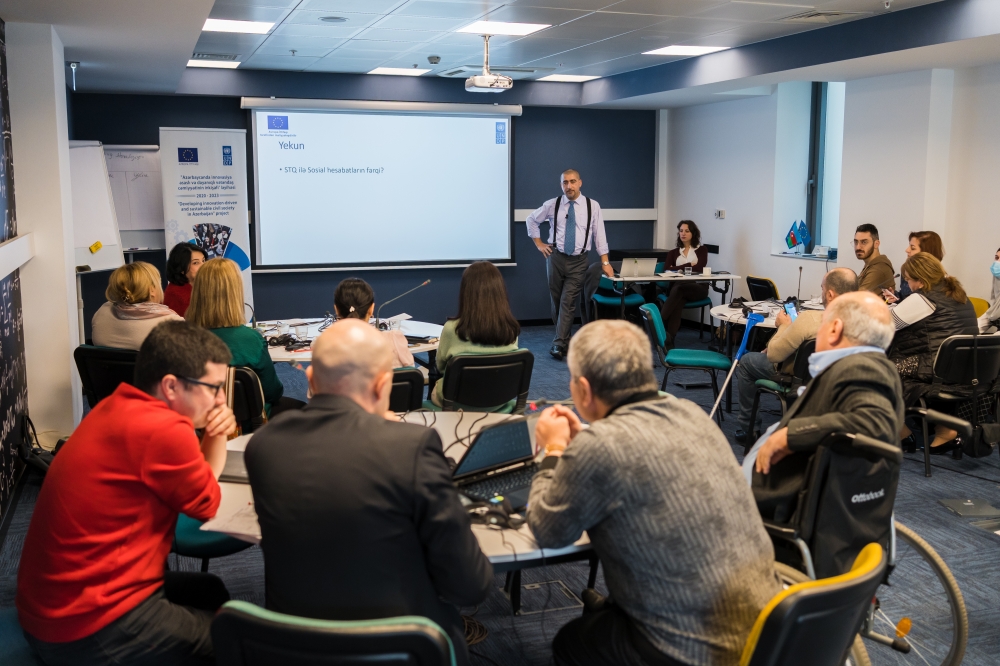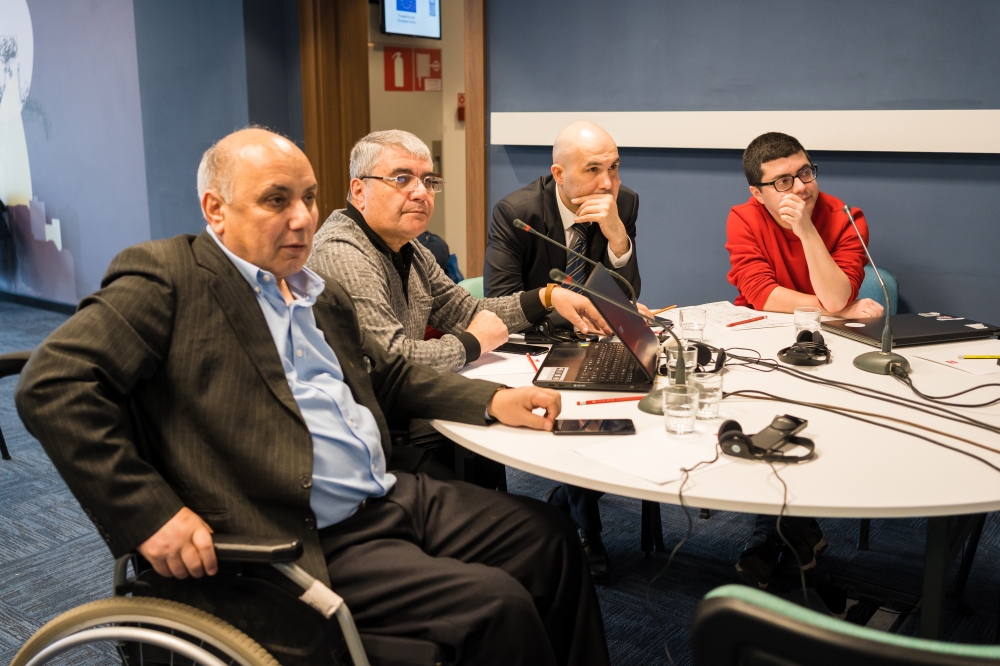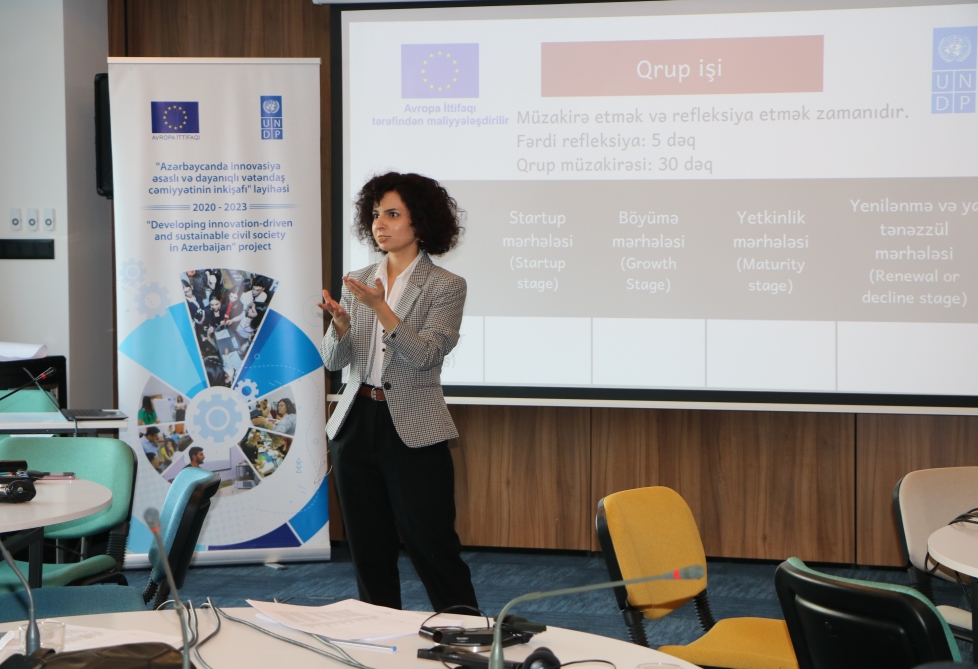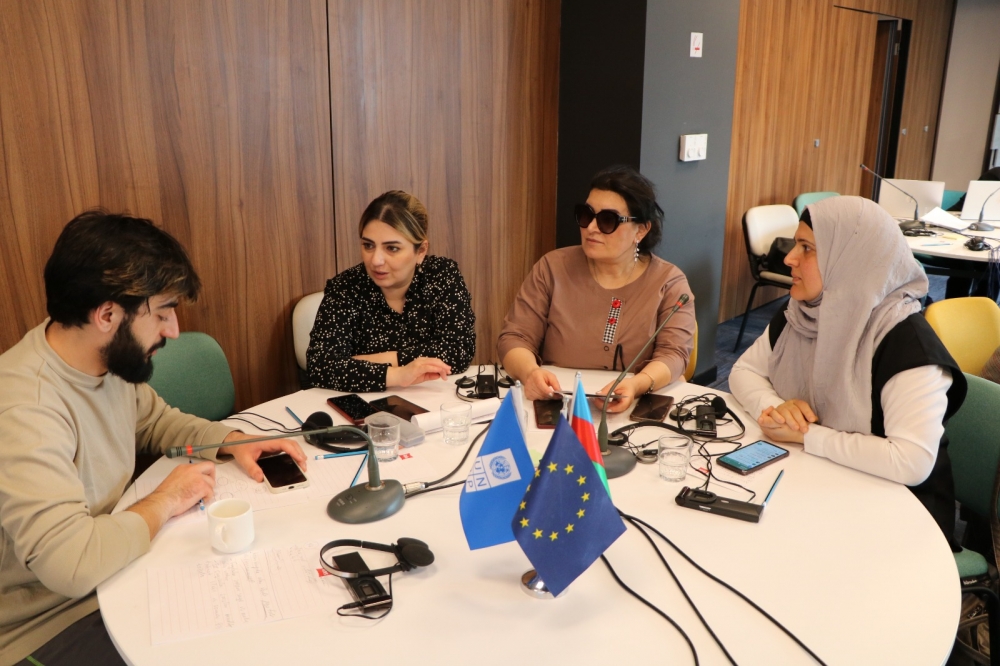
The European Union (EU) and UNDP organised a 5-day intensive business development training programme for some social entrepreneurs and the civil society organisations (CSOs) interested in starting up a social business in Azerbaijan.
As part of the EU-funded project in support of the CSOs, the programme brought together over 30 social entrepreneurs and activists from Aghdam, Baku, Ganja, Lankaran, Neftchala and Sheki. The training participants come from diverse backgrounds ranging from support and fund-raising platforms to CSOs engaged in local development and working with vulnerable communities.
The purpose of this programme is to teach fundamentals of business development to social entrepreneurs. The participants are expected to improve their understanding of social business and related concepts, and develop practical skills in idea generation, business design and planning, sales & marketing, as well as measuring and reporting social impact of their businesses.
The participants can use this knowledge to start a new social enterprise or expand an existing one. It will help them generate commercially viable business ideas which bring social or environmental value to their communities. With such approaches, CSOs can adopt the social business model as an alternative way to ensure financial sustainability by making profits which are then invested in solving social problems.
The workshops were delivered by a team of the local experts trained as master trainers within this project’s previous Training of Trainers programme led by ARCO Research Centre (Italy).
After this training series, the project will organise an ideation bootcamp to be followed by an acceleration programme in which the best business plans will receive financial support from the project.
The training programme is organised by the ‘Developing innovation-driven and sustainable civil society in Azerbaijan’ project, funded by the EU and implemented by UNDP. The project aims to support increase civil society organisations’ capacities to engage in policy-making processes, help local development, and promote social entrepreneurship in the country.



